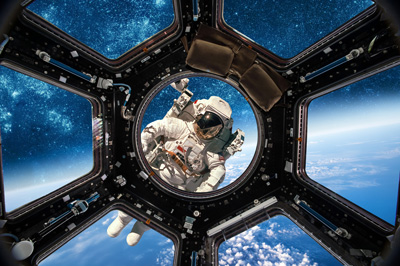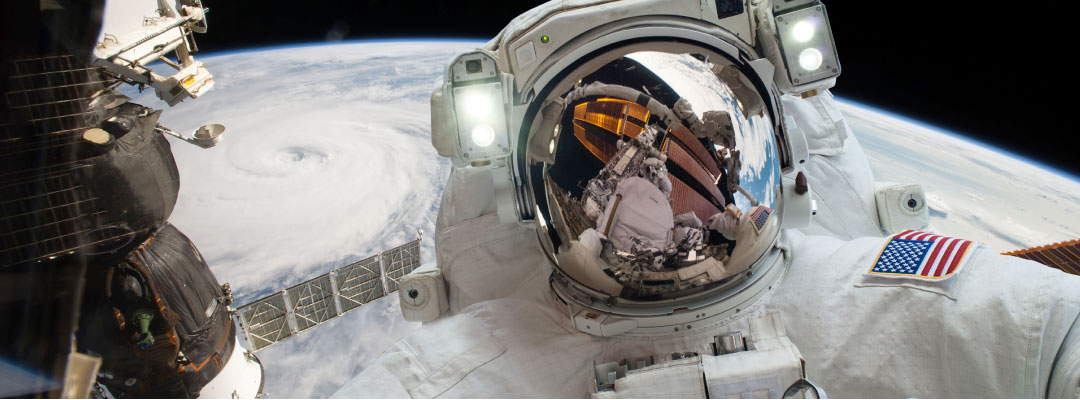 Human spaceflight has many inherent risks associated with sustained life in microgravity. Fatigue and alertness are perhaps the most significant concerns for safe and continued mission success. An isolated environment without diurnal variations can contribute to psychological and circadian stressors. Pre-flight identification of astronauts and commercial space passengers with an underlying sleep disorder is of paramount importance. Continued detection during the mission is critical to identify, intervene, and avert a critical error. Sleep deprivation, prolonged work hours and increased stressors are common in long duration space flights. Parasomnias, changes in sleep architecture, vivid dreams, and oxygen desaturations are frequently reported. Cognitive performance issues have all been described, including mission critical errors, task accuracy, recall and response time.
Human spaceflight has many inherent risks associated with sustained life in microgravity. Fatigue and alertness are perhaps the most significant concerns for safe and continued mission success. An isolated environment without diurnal variations can contribute to psychological and circadian stressors. Pre-flight identification of astronauts and commercial space passengers with an underlying sleep disorder is of paramount importance. Continued detection during the mission is critical to identify, intervene, and avert a critical error. Sleep deprivation, prolonged work hours and increased stressors are common in long duration space flights. Parasomnias, changes in sleep architecture, vivid dreams, and oxygen desaturations are frequently reported. Cognitive performance issues have all been described, including mission critical errors, task accuracy, recall and response time.
Aerospace Medical Sleep Consultants can employ custom fatigue detection protocols to determine risk to the astronauts, commercial space passengers and the overall mission. We employ biomathematical computerized modeling to help control circadian desynchronization during spaceflights. We develop and deploy strategies to enhance sleep quality and time, resolve underlying sleep disorders and ultimately mitigate and reduce errors and accidents.
